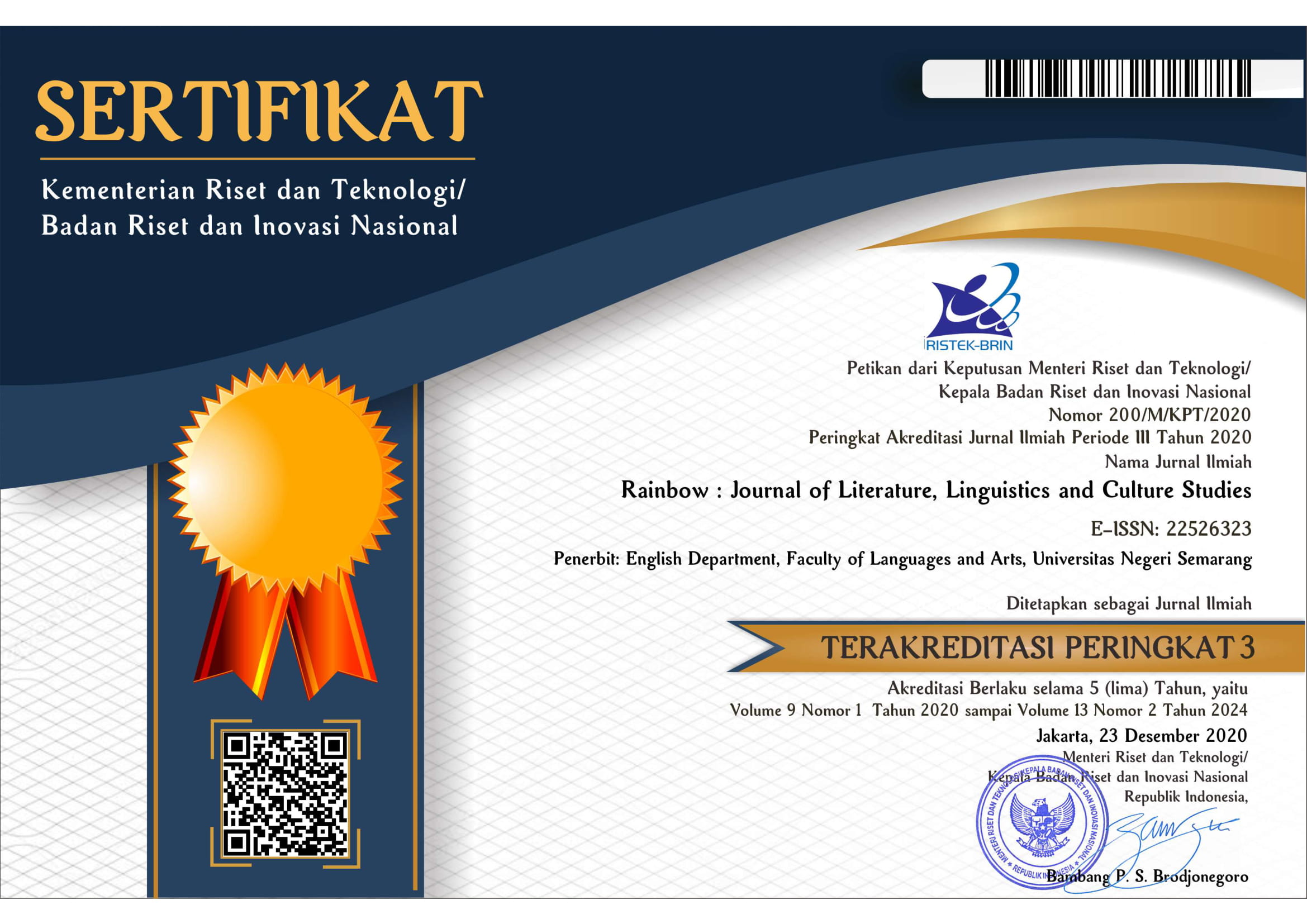Double colonization of Rhodesian women in Tsitsi Dangarembga’s 'Nervous Conditions'
Abstract
Nervous Conditions focuses on the story of the Shona family living in a patriarchal culture in Rhodesia during the postcolonial era in the 1960s. Rhodesia was a former British colony, so the legacy of colonialism and its influence is not that easy to go away. Hence, those who were colonized, or the locals experience many problems to cope with, especially women. Therefore, the study aims to examine the postcolonial issues in the novel dealing with double colonization. The objectives of the study were to describe and explain how the novel builds the themes related to postcolonialism and how the women living in patriarchy experienced oppression from male relatives as well as a colonial power. The study was done qualitatively using a content analysis method. The data were analyzed using Edward Said’s theory of Orientalism. The findings showed the story highlighted the themes of patriarchy and cultural contestation which affect the lives of the female characters. Then, the findings explained how the female characters were oppressed traditionally and colonially. Therefore, it showed how women were doubly colonized by males and Western domination. Thus, they had not been able to get full authority since they were trapped between both.
Copyright (c) 2021 Angga Brian Fernandi, Rahayu Puji Haryanti

This work is licensed under a Creative Commons Attribution 4.0 International License.







